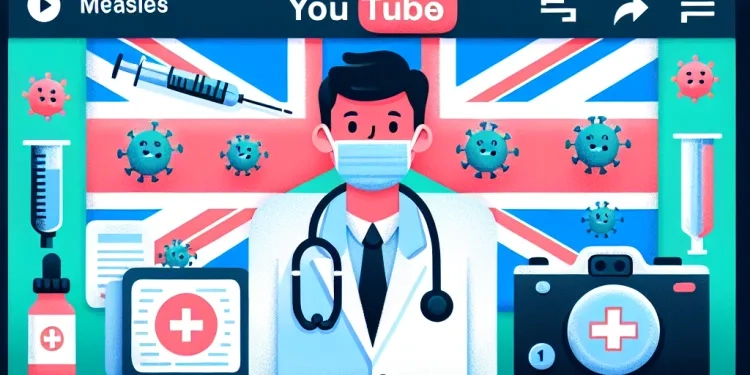
Find Help
More Items From Ergsy search
-
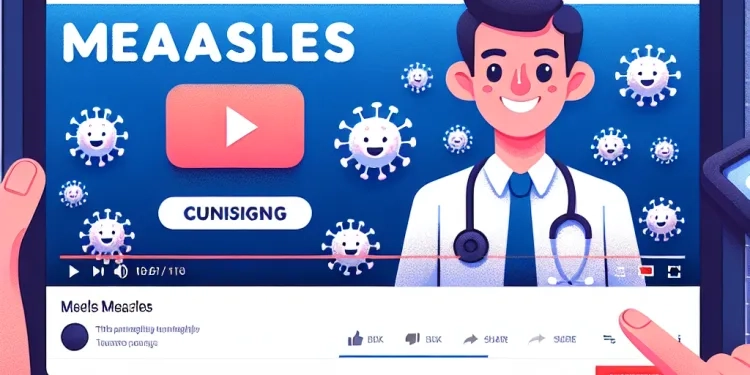
Measles
Relevance: 100%
-

Is there a treatment for measles?
Relevance: 95%
-

Is there a treatment for measles?
Relevance: 95%
-
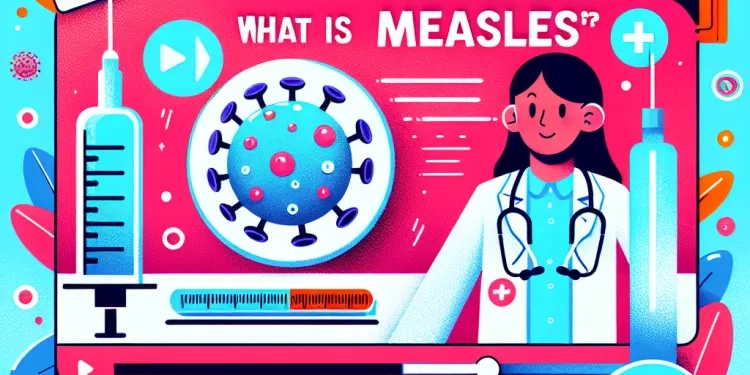
What is measles?
Relevance: 94%
-

How is measles transmitted?
Relevance: 91%
-

What are the symptoms of measles?
Relevance: 91%
-

How contagious is measles?
Relevance: 91%
-

Can measles be serious?
Relevance: 91%
-

How is measles transmitted?
Relevance: 91%
-

How is measles spread?
Relevance: 90%
-

Are measles outbreaks common in the UK?
Relevance: 90%
-

Can measles be treated?
Relevance: 90%
-

What are the symptoms of measles?
Relevance: 90%
-

Are measles cases rising in the UK?
Relevance: 90%
-

Is Rubella the same as measles?
Relevance: 90%
-

What are the symptoms of measles?
Relevance: 90%
-
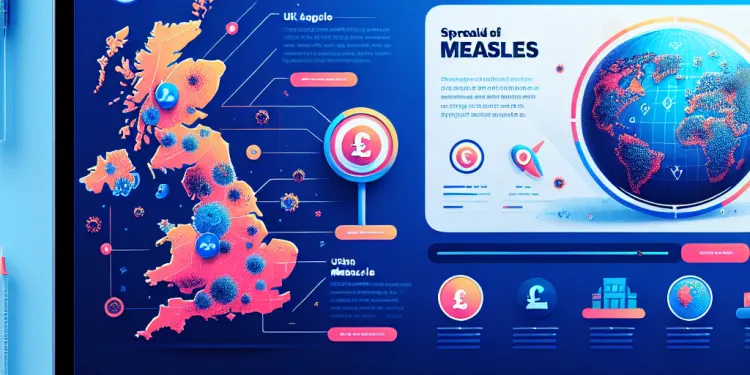
Are measles more common outside of the UK?
Relevance: 87%
-

Can measles cause complications?
Relevance: 87%
-

Are adults in the UK at risk from measles?
Relevance: 86%
-
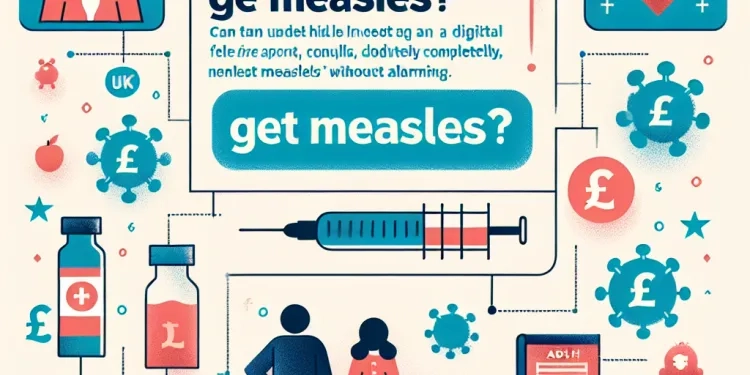
Can adults get measles?
Relevance: 86%
-

Why is measles less common in the UK?
Relevance: 86%
-
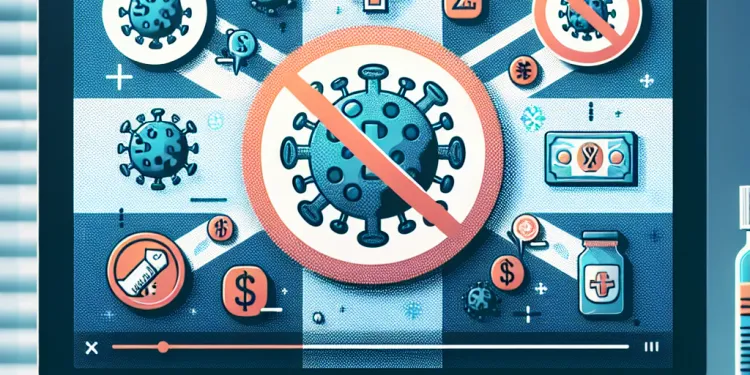
How can measles be prevented?
Relevance: 86%
-

Are measles cases currently rising in the UK?
Relevance: 86%
-
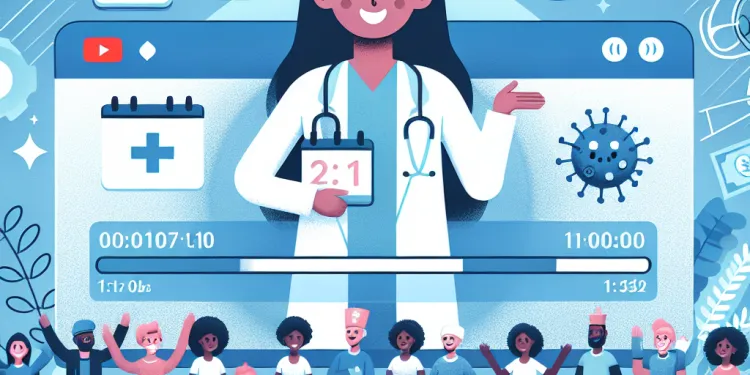
How long is a person with measles contagious?
Relevance: 84%
-

Who is most at risk from measles?
Relevance: 84%
-

What should I do if I suspect I have measles?
Relevance: 84%
-

How does the UK monitor measles outbreaks?
Relevance: 84%
-

Why are measles outbreaks still occurring?
Relevance: 84%
-

What is causing the rise in measles cases in the UK?
Relevance: 83%
-
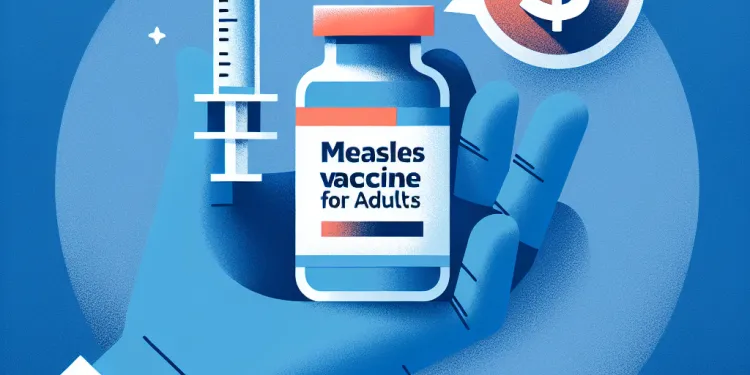
Can the measles vaccine be given to adults?
Relevance: 83%
-

How can measles outbreaks be prevented?
Relevance: 83%
-

What complications can arise from measles?
Relevance: 82%
-

Which countries have higher rates of measles?
Relevance: 82%
-

What is the current measles vaccination coverage in the UK?
Relevance: 82%
-

How does vaccination affect measles rates?
Relevance: 81%
-

Is there a risk of global spread if measles cases rise in the UK?
Relevance: 81%
-

Is it necessary to get a measles vaccine before travelling?
Relevance: 81%
-
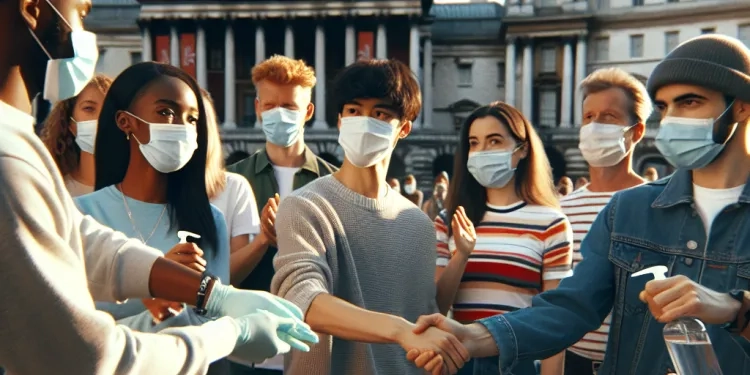
What should you do during a measles outbreak?
Relevance: 80%
-

Why has the UK lost its measles elimination status?
Relevance: 80%
-
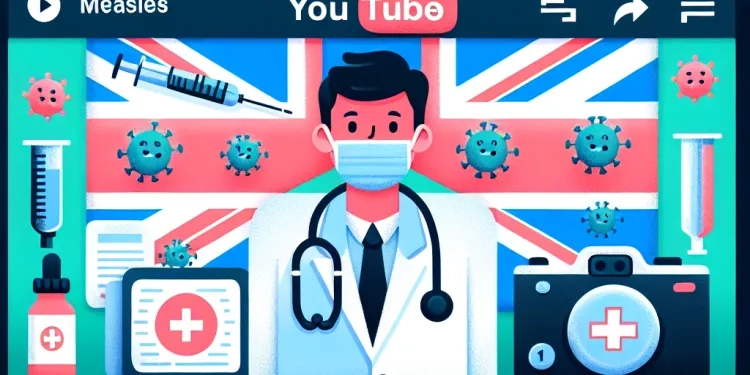
Can you get measles more than once?
Relevance: 79%
Can You Get Measles More Than Once?
Measles is a highly contagious viral disease that primarily affects children but can occur at any age. It is caused by the measles virus, which is spread through respiratory droplets. Once a person is infected with measles, their immune system builds a strong memory response to the virus. This means that, in most cases, they become immune to future infections. However, can measles strike a person more than once?
Understanding Measles Immunity
When a person is infected with measles, their body typically responds by producing antibodies and memory cells that help protect against future infections. This response usually provides lifelong immunity. In most cases, once you have had measles, you will not get it again. However, there are rare instances where immunity might weaken or not be fully effective, particularly in individuals with weakened immune systems.
Vaccination and Its Role
The measles, mumps, and rubella (MMR) vaccine is highly effective in preventing measles. In the UK, the MMR vaccine is a crucial part of the routine childhood vaccination programme, given in two doses to ensure optimal immunity. The first dose is administered at around 12 months of age, and a second dose is given before starting school, usually at three years and four months of age. Vaccination not only protects individuals from getting measles but also helps maintain herd immunity, which is essential for preventing outbreaks.
Cases of Second Infection
While rare, there have been documented cases where individuals have contracted measles more than once. These cases are typically associated with primary or secondary immunodeficiency conditions. For most people, once vaccinated or having had the disease, second infections are rare. However, maintaining high vaccine coverage is vital to prevent measles resurgence and accidental exposure.
Conclusion
In conclusion, for the majority of individuals, experiencing measles confers lifelong immunity, meaning you are unlikely to get the disease more than once. Vaccination remains the most effective way to protect against measles infection and ensure community safety. If you or your child are unsure about your vaccination status, consult your GP in the UK for advice on protection against measles and other preventable diseases.
Can You Get Measles More Than Once?
Measles is a sickness that spreads easily. It mostly affects kids, but anyone can get it. When you get measles, your body remembers it, so you usually don't get it again. But can measles come back?
Understanding Measles Immunity
If you have measles, your body makes special fighters called antibodies. These help stop you from getting measles again. Most people who have had measles won't catch it again. But sometimes, if someone has a weak body, these fighters might not work as well.
Vaccination and Its Role
The MMR vaccine helps stop measles. In the UK, kids get this vaccine to stay safe from measles. They get it twice: once at around 12 months old and again before starting school at about 3 years and 4 months. Getting vaccinated helps everyone stay healthy and stops measles from spreading.
Cases of Second Infection
It is very rare, but some people have gotten measles more than once. This usually happens if their body is not strong enough. For most people who have had measles or the vaccine, getting it again is unlikely. Keeping everyone vaccinated helps stop measles from coming back.
Conclusion
In short, most people who get measles once do not get it again. Vaccines are the best way to protect against measles. If you are not sure if you have had your vaccine, talk to your doctor in the UK to stay safe from measles and other sicknesses you can prevent.
Frequently Asked Questions
Can you get measles more than once?
Once a person has had measles, they are usually immune for life, meaning they are unlikely to get the disease again.
What is measles?
Measles is a highly contagious viral infection that primarily affects children. It is characterized by symptoms such as fever, cough, runny nose, and a distinctive rash.
How is measles spread?
Measles is spread through respiratory droplets from coughing or sneezing. It can also be contracted by touching a surface with infectious droplets and then touching the face.
What are the symptoms of measles?
Symptoms include high fever, cough, runny nose, inflamed eyes, and a red, blotchy rash that typically starts on the face and spreads to other parts of the body.
How is measles diagnosed?
A healthcare professional can diagnose measles based on symptoms and a patient's medical history. A laboratory test can also confirm the diagnosis.
Is there a vaccine for measles?
Yes, the MMR vaccine protects against measles, mumps, and rubella. It is highly effective and is routinely given to children in the UK.
At what age should children receive the measles vaccine?
In the UK, the first dose of the MMR vaccine is given to children around their first birthday, with a second dose typically given before they start school.
Can adults get vaccinated for measles?
Yes, adults who have not been vaccinated or have not had measles can receive the MMR vaccine.
Are there any side effects of the measles vaccine?
Side effects are generally mild and may include soreness or redness at the injection site, fever, or mild rash.
Why is vaccination important for measles?
Vaccination is crucial to prevent outbreaks, protect individuals who cannot be vaccinated, and eventually eradicate the disease.
Is measles a concern in the UK?
Measles is rare in the UK due to vaccination efforts, but cases still occur, particularly when vaccination rates drop.
What complications can arise from measles?
Complications can include ear infections, diarrhoea, pneumonia, encephalitis, and death, especially in young children and immunocompromised individuals.
Can pregnant women get vaccinated for measles?
Pregnant women should not receive the MMR vaccine. They should consult with their healthcare provider for advice on vaccination after pregnancy.
What should I do if I think my child has measles?
Contact your GP immediately. It's important to inform them in advance so they can take precautions to prevent the spread of the virus.
Can measles be treated?
There is no specific antiviral treatment for measles. Care focuses on relieving symptoms and addressing complications. Vitamin A supplements may be recommended in some cases.
Can you catch measles again?
No, if you had measles once, you usually can't get it again. Your body learns how to fight it. This is called being "immune."
If you have questions about measles, ask a doctor or a healthcare worker. They can help you understand more.
Reading tools, like audiobooks or reading with someone, can help if reading is hard.
When someone gets measles once, they usually don't get it again. This means they are safe from measles for the rest of their life.
What is measles?
Measles is a sickness that makes you feel very bad. It is caused by a virus. It can make you cough, sneeze, and have a fever. You might get red spots on your skin.
To stay safe, it is good to get a special medicine called a vaccine. The vaccine helps your body fight off the virus. If you feel sick, a doctor can help you. You can also rest, drink water, and stay away from others who are not sick.
Measles is a sickness caused by a virus. It spreads very easily. Children often get it. When kids have measles, they might have a fever and cough. Their nose might be runny, and they can get a spotty rash.
How does measles spread?
Measles is a sickness. It spreads very easily.
You can catch measles if you come close to someone who has it. It spreads through coughs and sneezes.
If someone with measles coughs or sneezes near you, you can breathe in the germs and get sick too.
To stay safe:
- Wash your hands often.
- Stay away from people who are sick.
- Get a vaccine to help protect you from measles.
Measles spreads when someone coughs or sneezes. Tiny drops with germs go into the air. You can also get measles by touching something with these drops, then touching your face.
What happens if you have measles?
Signs you might be sick are a high fever, coughing, runny nose, sore eyes, and a red rash with spots. The rash usually starts on your face and moves to other parts of your body.
If you need help with reading, try using a ruler or your finger to keep your place. Reading with a friend lets you take turns and helps each other understand better.
How do doctors know if someone has measles?
Doctors check if someone has measles by:
- Looking at the spots on the skin.
- Asking about a fever and a cough.
- Doing a blood test to be sure.
It's important to see a doctor if you think you have measles.
If you need help with reading:
- Ask someone to read with you.
- Use pictures to understand better.
- Try listening to the information as audio.
A doctor or nurse can tell if someone has measles by looking at their symptoms and learning about their health in the past. A test can also help to make sure it is measles.
Is there a vaccine for measles?
Yes, there is a vaccine for measles. A vaccine is a special medicine that helps stop you from getting sick. If you get the measles vaccine, it helps protect you from the measles virus.
To get more help, you can:
- Ask a doctor for more information about the vaccine.
- Look at pictures or videos about how vaccines work.
- Use apps that read text aloud if you find reading hard.
Yes, the MMR shot helps keep you safe from measles, mumps, and rubella. It works really well and kids in the UK usually get it.
When do children get the measles vaccine?
Children usually get the measles vaccine when they are 1 year old. They get another shot when they are 4 or 5 years old. These shots help keep children safe from getting sick with measles.
If you want to know more about vaccines, you can ask a doctor or nurse. You can also look at pictures or watch videos to learn more. It is always good to ask questions if you do not understand something.
In the UK, children get the first MMR vaccine shot when they are about one year old. They get the second shot before they go to school.
Can grown-ups get a shot for measles?
Yes, grown-ups can get a measles shot.
The shot helps keep you safe from getting sick.
It is good to talk to a doctor or nurse. They can tell you if you need the shot.
They will help you feel better and safe.
Ask questions if you do not understand. It is okay to ask for help.
Yes, grown-ups who have not had the measles shot or have not had measles can get the MMR shot.
Does the measles shot have any side effects?
The measles shot might cause a few minor things like a sore arm, fever, or rash. These usually don't last long.
If you are worried, talk to a doctor or nurse.
You can use pictures or videos to understand more about the measles shot.
The medicine might cause some small problems. Your arm might be sore or red where you got the shot. You might also get a fever or a little rash.
Why do we need vaccines for measles?
Getting a vaccine can stop us from getting sick with measles. Measles is a disease that spreads easily from one person to another. It can make people feel very unwell.
If lots of people get the measles vaccine, fewer people will get sick. This helps keep everyone safe and healthy.
Some tools that can help us learn more about vaccines are:
- Ask a doctor or nurse for more information.
- Use pictures and videos to understand better.
- Read books or ask someone to read with you.
Getting vaccinated is very important. It helps stop people from getting sick. It also helps people who can't get the vaccine. If everyone gets vaccinated, we can make the disease go away forever.
Should we worry about measles in the UK?
Measles is an illness that can make people feel very sick. It causes a rash and a fever. In the UK, most people are safe from measles because they get a vaccine that helps stop them from getting sick. But sometimes, some people might not have had their vaccine.
If you or your family have not had the measles vaccine, it's good to talk to a doctor. They can help you by giving the vaccine. The vaccine is a little medicine that keeps you safe from measles.
You can use tools like pictures or videos to help understand more about measles and why vaccines are important. It's okay to ask questions if you don't understand something. You can also ask someone else to help explain it to you.
Measles is not common in the UK because most people get a vaccine. But if fewer people get vaccinated, some people can still catch measles.
What problems can come from measles?
Measles is an illness that can make you feel very sick.
Sometimes, measles can cause other problems too. These are called "complications."
Here are some problems measles can cause:
- Ear infection - This can make your ear hurt and hard to hear.
- Pneumonia - This is when your lungs get sick and you might cough a lot.
- Diarrhea - This means you have to go to the bathroom a lot.
- Encephalitis - This is when your brain gets swollen and it can make you very sick.
Getting a shot called a "vaccine" can help you not get measles.
To understand more, you can:
- Ask a doctor or nurse for help.
- Watch a video about measles.
- Read a simple book or use pictures to learn.
Sometimes, problems can happen. You might get an ear infection, have diarrhoea, get very sick with pneumonia, or have a serious brain illness called encephalitis. These problems can be very bad, and even cause death. Young children and people who are already sick can get these problems more easily.
If you have trouble reading, using pictures can help you understand better. Talking with someone you trust can also be helpful.
Can women who are going to have a baby get the measles shot?
If you are going to have a baby, it is important to stay healthy. Talk to your doctor to learn what is safe.
Ask your doctor if it is okay for you to get the measles shot. They will help you decide.
You can also ask a trusted family member or friend to help you talk to your doctor.
There are websites and apps that can help you understand more about the measles shot. Try to use pictures and videos to make it easier.
Women who are going to have a baby should not get the MMR shot. Talk to your doctor or nurse about when to get the shot after the baby is born.
What should I do if I think my child has measles?
If you think your child has measles, here is what you can do:
- Look at your child's skin for red spots or a rash.
- Check if your child has a fever or cough.
- Keep your child away from other people.
- Call your doctor or nurse for help.
- Tell the doctor about your child's symptoms.
If you need more help, you can:
- Use pictures to understand symptoms.
- Use simple words when talking to the doctor.
- Ask someone to help you talk to the doctor.
Call your doctor right away. Tell them as soon as you can, so they can stop the virus from spreading.
Can we make measles go away?
Measles is a sickness that has a red rash and a fever. It is important to see a doctor if someone has measles. Doctors can help to make the symptoms feel better. There are no special pills to make measles go away fast, but medicine can help you feel better.
Here are things that can help:
- Rest a lot.
- Drink lots of water or juice.
- Take medicine for fever.
If you are worried or have questions, ask a doctor or nurse for help.
There is no medicine that can cure measles. We help people feel better by taking care of their symptoms, like a fever or rash. Sometimes, doctors suggest taking Vitamin A to help.
Useful Links
This website offers general information and is not a substitute for professional advice.
Always seek guidance from qualified professionals.
If you have any medical concerns or need urgent help, contact a healthcare professional or emergency services immediately.
Some of this content was generated with AI assistance. We’ve done our best to keep it accurate, helpful, and human-friendly.
- Ergsy carfully checks the information in the videos we provide here.
- Videos shown by Youtube after a video has completed, have NOT been reviewed by ERGSY.
- To view, click the arrow in centre of video.
- Most of the videos you find here will have subtitles and/or closed captions available.
- You may need to turn these on, and choose your preferred language.
- Go to the video you'd like to watch.
- If closed captions (CC) are available, settings will be visible on the bottom right of the video player.
- To turn on Captions, click settings .
- To turn off Captions, click settings again.
More Items From Ergsy search
-

Measles
Relevance: 100%
-

Is there a treatment for measles?
Relevance: 95%
-

Is there a treatment for measles?
Relevance: 95%
-

What is measles?
Relevance: 94%
-

How is measles transmitted?
Relevance: 91%
-

What are the symptoms of measles?
Relevance: 91%
-

How contagious is measles?
Relevance: 91%
-

Can measles be serious?
Relevance: 91%
-

How is measles transmitted?
Relevance: 91%
-

How is measles spread?
Relevance: 90%
-

Are measles outbreaks common in the UK?
Relevance: 90%
-

Can measles be treated?
Relevance: 90%
-

What are the symptoms of measles?
Relevance: 90%
-

Are measles cases rising in the UK?
Relevance: 90%
-

Is Rubella the same as measles?
Relevance: 90%
-

What are the symptoms of measles?
Relevance: 90%
-

Are measles more common outside of the UK?
Relevance: 87%
-

Can measles cause complications?
Relevance: 87%
-

Are adults in the UK at risk from measles?
Relevance: 86%
-

Can adults get measles?
Relevance: 86%
-

Why is measles less common in the UK?
Relevance: 86%
-

How can measles be prevented?
Relevance: 86%
-

Are measles cases currently rising in the UK?
Relevance: 86%
-

How long is a person with measles contagious?
Relevance: 84%
-

Who is most at risk from measles?
Relevance: 84%
-

What should I do if I suspect I have measles?
Relevance: 84%
-

How does the UK monitor measles outbreaks?
Relevance: 84%
-

Why are measles outbreaks still occurring?
Relevance: 84%
-

What is causing the rise in measles cases in the UK?
Relevance: 83%
-

Can the measles vaccine be given to adults?
Relevance: 83%
-

How can measles outbreaks be prevented?
Relevance: 83%
-

What complications can arise from measles?
Relevance: 82%
-

Which countries have higher rates of measles?
Relevance: 82%
-

What is the current measles vaccination coverage in the UK?
Relevance: 82%
-

How does vaccination affect measles rates?
Relevance: 81%
-

Is there a risk of global spread if measles cases rise in the UK?
Relevance: 81%
-

Is it necessary to get a measles vaccine before travelling?
Relevance: 81%
-

What should you do during a measles outbreak?
Relevance: 80%
-

Why has the UK lost its measles elimination status?
Relevance: 80%
-

Can you get measles more than once?
Relevance: 79%


